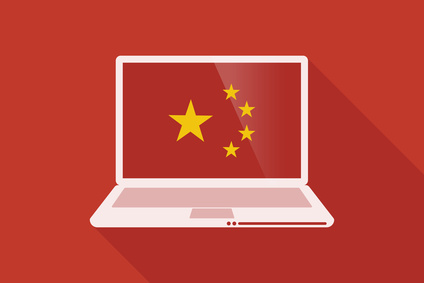China may become more liberal towards business method and software related patents
On 27 October 2016, the State Intellectual Property Office of China (SIPO) published, for comments by the public, proposed draft revisions to its current Examination Guidelines for examining software-related inventions. In the draft revised Guidelines SIPO goes one step further, as, in addition to granting patents for software-related inventions that solve a technical problem, is willing to allow patents for data carriers, and, in some cases, even for business methods.
Over recent decades and particularly since the turn of the Millennium, China has made highly significant advances in its IP protection regime. In the field of computer-implemented inventions, however, like many other patent examining authorities, SIPO held the position that for an invention to be patentable, it had to solve a technical problem[1]. This stance, while classifying some categories of software-related inventions as patent eligible, still ruled out the obtaining of patents on many other types of computer-implemented inventions, such as the so called “business methods” inventions.
Recently, SIPO has published draft revisions to its Examination Guidelines, soliciting comments from the public. The revised Guidelines are expected to be officially released early in 2017. The draft revised Guidelines deal with a number of aspects. Two merit specific attention: data carriers and business methods.
Data Carriers
Generally speaking, patent protection of software related inventions may be obtained via claims directed to methods, systems and data carriers. According to the draft revision to the Examination Guidelines, SIPO appears to be leaning towards an approach similar to that taken in the US and Europe in that data carrier claims may should be permitted.
Data carrier type claims are of particular importance for enforcing patent rights on such inventions. In the case of a software product, the computer code has to be executed on a computer in order to qualify as infringing the patent. However, with the availability of claims directed to data carriers, enforcement would be easier as even if the computer code is merely stored on the carrier and is designated to perform functions that are defined in a data carrier claim, the product that embodies the computer code will infringe the such a claim without the code being actually executed. For example, in the case of the software product being an application that is executed on a cell phone infringes a patent, then the product will be regarded as infringing a data carrier claim of the patent, even if the application is only stored on a sever for downloading by, and execution on, a cell phone .
Thus, the importance of such revisions is that they pave the way for better enforceable patent rights in China, for many software-related inventions.
Business Methods
The draft revisions of the Examination Guidelines further discuss inventions related to business methods. Such patents are generally banned throughout the world. In the US, such patents became unavailable following a few Supreme Court decisions, the latest being the 2014 decision in the Alice[2] case where such inventions were classified as non-patentable abstract ideas. In the EPO[3], business method related patents are generally unavailable although there may be occasional exceptions, where the invention involves a technical effect.
According to Article 25 of the Chinese Patent Law, inventions that are classified as mental activities are patent ineligible subject matter[4]. Chapter 1, Section II of the current Chinese Patent Examination Guidelines that pertains to Article 25, classifies business methods as a type of “mental activity”, and, thus, excludes such from patent protection.
The draft revisions to the Examination Guidelines ease the former total ban by noting that “[i]f a claim related to a business model involves not only content of business rules and methods but also technical characteristics, it shall not be excluded from the possibility of being granted a patent right according to Article 25 of the patent law“. Moreover, in the official explanation of the draft revision, it is explicitly listed that SIPO welcomes and encourages inventions in the fields of finance, insurance, bond/securities, leasing, auction, investment, marketing, advertising, and management, which all clearly fall in the “business” category. This pioneering statement has no precedent in the US or Europe, and suggests that, at least in this matter, China is adopting a more liberal approach than leading industrial countries.
Concluding Notes
The draft revision to the Examination Guidelines should be welcomed news to innovators in the field of computer-implemented inventions. However, one should bear in mind that this draft has not yet been officially released. Additionally, regarding business method-related inventions, even if not excluded under Article 25, they may still be rejected based on the definition of an invention in Article 2.2[5] which stipulates the requirement of involving a technical solution. Furthermore, even if the invention is deemed as a technical solution, it still has to fulfill the requirements of inventive step (which, in practice, requires that a technical problem be solved). That being said, per the official explanation of the draft, SIPO seems to be actively investigating the protection of business method patents, and is certainly providing an indication of favorable protection. It remains to be seen if, and to what extent, the proposed draft will be adopted as part of SIPO’s Examination Guidelines.
[1] Chapter 9, Section II of the Chinese Patent Examination Guidelines issued in 2010 pertains to Article 25 of the Chinese Patent Law where it reads “Patent rights shall not be granted for any of the following: … (2) rules and methods for mental activities” and explains under what circumstances a computer program related invention will not be deemed a mental activity.
[2] Alice Corp. v. CLS Bank International.
[3] The European Patent Office – the authority in Europe that is responsible for the examination and grant of European patents.
[4] See footnote 1.
[5] Article 2.2 of the Chinese Patent Law defines inventions as “any new technical solution relating to a product, a process or improvement thereof“.
This article is provided for general information only. It is not intended as legal advice or opinion and cannot be relied upon as such. Advice on specific matters may be provided by our group’s attorneys.

